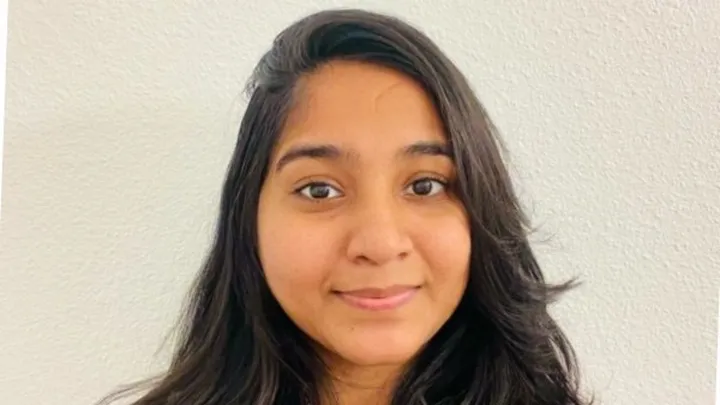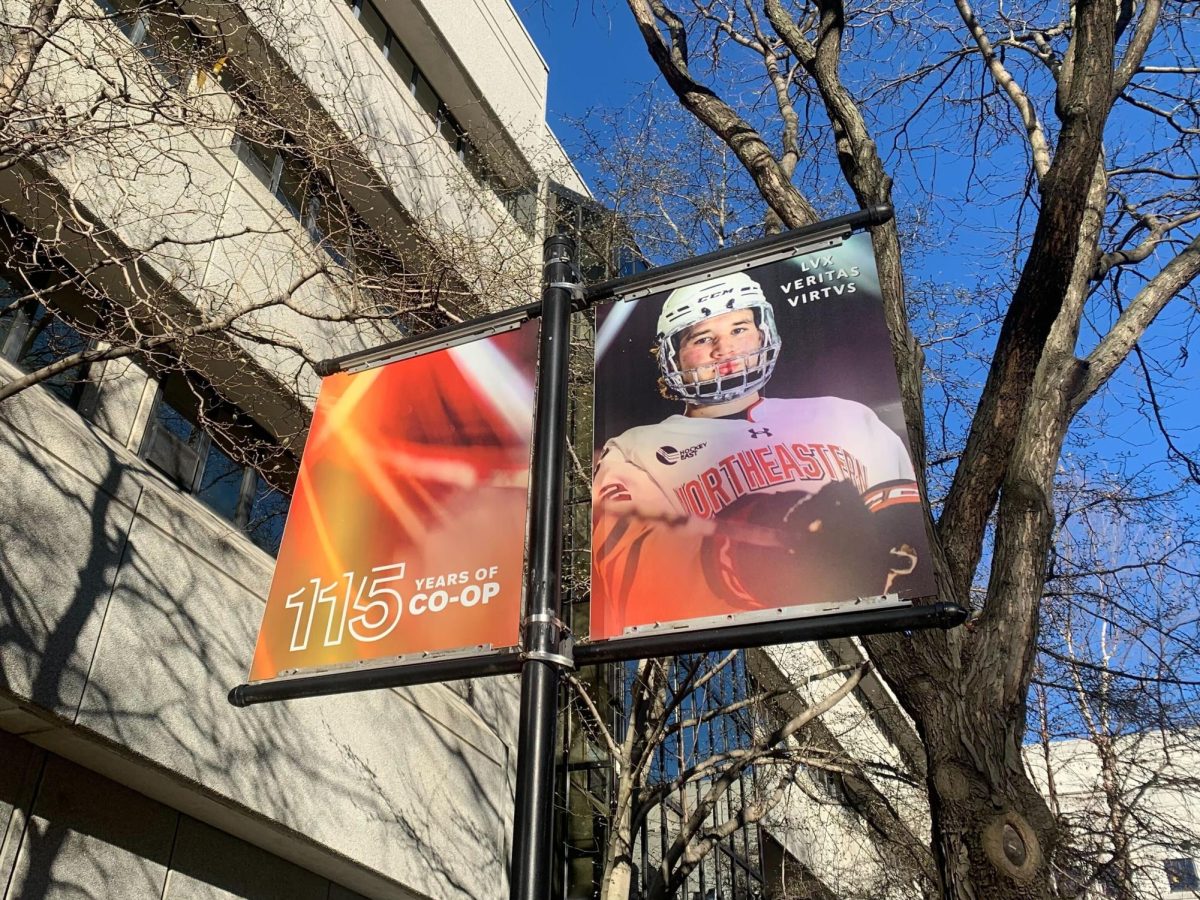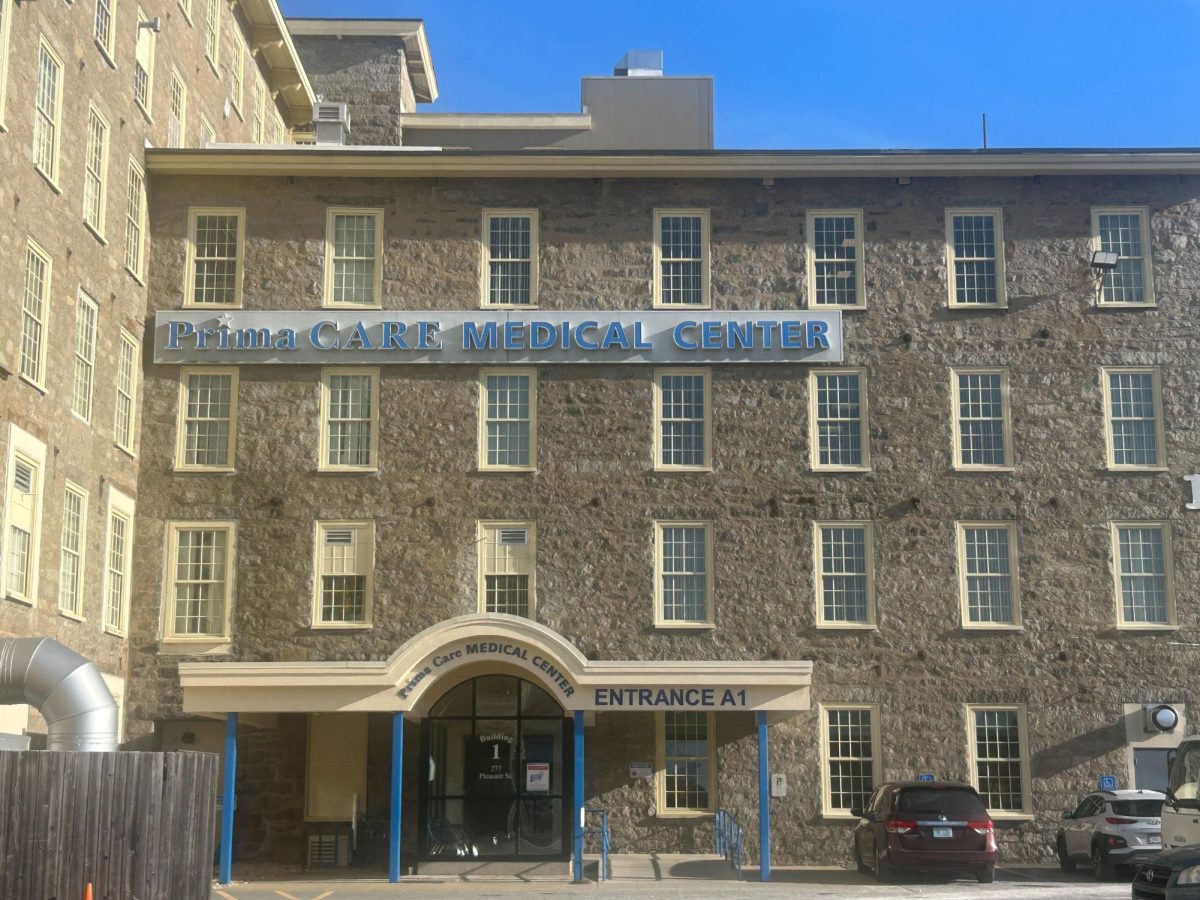By Kelly Kasulis, News Staff
Kayla Hazel was sitting on a New York City subway with her mother, traveling between two doctor offices, when she finally decided to look at the slip of paper in her hands. It was meant for the second doctor, and she wasn’t supposed to peek at it.
“Metastatic carcinoma,” it read.
The middler physical therapy major from Long Island, known for her sporadic, adrenaline-seeking skydiving and bungee jumping stints, uncharacteristically fell silent. She was trying to “hold it together” as her mother cried publicly, receiving inquisitive looks from the other passengers around them.

“It was like I got punched in the stomach. I felt like I was going to throw up, like the wind was just taken out of me,” she said.
Hazel was in between follow-up appointments after doctors removed her thyroid, which wasn’t functioning and was considered precancerous. That night, they were supposed to attend the Radio City Music Festival with Hazel’s grandmother and aunt.
“I didn’t know what to think about it. No one knew what to do,” she said. “I was thinking about how I would have to go [to the concert] and just act normal that night.”
Hazel had just returned from her Dialogue in South Africa, where she studied health care systems in Cape Town, Johannesburg and Durban. She was about to start a co-op as a rehabilitation aid at the Hospital for Special Surgery in New York City.
Before leaving for South Africa, Hazel received a routine physical. She learned her thyroid seemed enlarged, something that her endocrinologist said was fairly normal.
“My grandma has thyroid problems, everyone in my family has thyroid problems. I just thought I would just have to go on that same pill that they use to regulate it,” she said.
When she got back to the US, tests revealed that the thyroid wasn’t functioning and would have to be removed. It wasn’t until the surgery itself that doctors found a malignant tumor wrapped around the back of the gland – which Hazel first discovered from the printout she was supposed to deliver to her second doctor.
“It had just escalated from one weird little medical anomaly to where it was like, ‘Okay, this is a worst case scenario,’” she said. “A year ago, I would have never thought that my life would take the course that it did.”
Hazel underwent treatment through a small, white “Tylenol-like” pill that killed her remaining thyroid cells by poisoning them with iodine radiation. The pills made her body fluids – her sweat, urine and saliva – radioactive, causing her to spend a week in the basement sleeping, watching her favorite reality TV shows and reading books. Because of her radioactivity, she couldn’t touch her cell phone or computer and had to avoid people of “child-bearing age.”
“My mom would sit with me, saying, ‘I don’t care – I’m not having any more kids and I’m not going to let you sit in the basement all by yourself,’” she said. “And I would tease my brother by telling him that I used his toothbrush.”
In reality, Hazel had to seal her toothbrush in a plastic bag and hide it in her closet, letting its radioactivity fade before throwing it out. It was possible that state health departments would detect the radiation all the way from their headquarters.
Five months after receiving treatment and now in remission, Hazel resumes her life as usual – juggling yoga sessions, routine workouts, the physical therapy club and her involvement with Sigma Kappa. She is about to wrap up what she said physical therapy students know as “hell year,” where three consecutive semesters of 22-credit classes are endured in the name of a six-year doctorate program. But “hell year” helped her move on from her cancer, she said.
“There are some days now where I forget it even happened, but then again, I never used to get tired this fast,” she said.
Hazel is just one of several students at Northeastern adamantly chasing their degrees while coping with cancer in a national landscape where one in 100 college students have some form of cancer, according to a report published by the US Department of Health and Human Services.
The same study reported that cancer is the fourth leading cause of death among people age 15-39 and that it is the leading cause of death among females in this age group.
Keeping busy has also been constructive for middler physical therapy major Calvin Koo, who was diagnosed with leukemia in 2010 during his senior year of high school. Doctors tested Koo’s blood because he noticed that he was getting tired and started bruising easily on his legs.

“I just assumed that I was working out too hard or something,” he said. “[Cancer] wasn’t really expected or anything.”
An inherently optimistic Brooklyn native and member of Northeastern’s Pi Delta Psi fraternity, Koo said that his parents were devastated at the diagnosis while he held a strong front.
“I’m very practical and don’t like to be down all the time – I like to put my best foot forward,” he said. “But, obviously, seeing your son or daughter in a hospital is a very difficult thing for anybody. In some ways, I really think my parents suffered more than me. Physical pain isn’t as bad as seeing the person you love in physical pain.”
Koo delayed his enrollment to Northeastern by a semester, taking classes at nearby Hunter College and undergoing chemotherapy for three months in April 2010. As an inpatient of the New York Presbyterian Hospital, friends and family members visited him frequently. When he was alone, he used his wise-cracking sense of humor to befriend the nurses, as he was the youngest patient on the floor.
“When you spend a couple of months in the hospital, you definitely get bored,” he said. “I always had a calendar on the side of my bed and I would just look at it and remind myself that it was one less day I had to be there and one day closer to getting out.”
Koo is four years into remission, and his tests have gone from being every three months to now every sixths months. Once he reaches his fifth year of remission, he will only need annual examinations for leukemia.
“Right now, my life is pretty good. I can’t complain,” he said. “I’ve got good friends around me, good roommates – there’s not much else you can ask for.”
In particular, Koo emphasized that the support of his fraternity brothers helped him transition smoothly into the university. Pi Delta Psi raised over $1,200 this year by participating in Relay for Life.
For Michelle Fater, a senior behavioral neuroscience major from Worcester who is currently on leave from Northeastern, the battle is ongoing. When she was 15, Fater was diagnosed with multiple brain tumors called gliomas, which were given surgical biopsies a year later in 2010. Nothing could be concluded from them.

Last December, she received her second surgery to remove the gliomas and woke up paralyzed on the right side of her body. Fater still has trouble moving her right arm and has small, periodic seizures in that arm.
“I used to be really into art and sketching and I used to love running,” she said. “Now, that’s a little bit tricky, but I’m going to learn to adapt.”
She spoke with The News on her way to the airport, where she set off for a week-long trip to Barcelona with her boyfriend as a celebration of her promising recovery.
“When I first woke up paralyzed, I was crying and everyone had to reassure me that it was okay, that it was temporary and I would get mobility back,” she said. “I spent the last three months learning how to walk again and move again, until the point that I am learning how to drive again. It’s all worth it.”
Fater spent on-again, off-again days in the ICU and was later transported to Spalding Rehab Center in Charleston, where she balanced physical therapy, aquatherapy, pilates and occupational therapy. The busy schedule, she said, has kept her emotions at bay.
“I don’t think I’ve really had time to feel, because everything just kept happening and happening, one thing after another,” she said. “Besides, it’s made me a much stronger person. There’s not much that can break me down at this point.”
She also said that cancer has made her grow up very quickly.
“Usually, you have to comfort everyone else and ensure them that it will be okay instead of someone comforting you,” she said.
According to all three students, their experiences were a test in resilience that ultimately brought them closer to their families. Not once did they consider throwing in the towel.
“What I wanted and still want is what every cancer patient wants, and that’s to have a normal life and resume your life the way you want to,” Koo said. He noted that his decision to continue at Northeastern had a lot to do with his parents, especially his mother, who slept next to his bed every night while he was in the hospital undergoing chemotherapy.
“My parents worked their whole life for me to get a good, quality education, and I didn’t want to let them down – it made me want to work hard for them,” he said.
Hazel said that she learned to be selective about what worried her or bothered her, a stark contrast from her formerly grade-obsessed self.
“There’s a bigger picture outside of the little Northeastern bubble that I feel like I live in sometimes,” she said. “My new philosophy on life is, ‘you know what? Everything could be worse. We should be happy with what we have now.’”
“People get caught up on the little things. Take a breather,” Fater agreed. “This recent surgery taught me not to fear death … Just be sure that you’re happy with what you achieved in life at the end of the day.”








